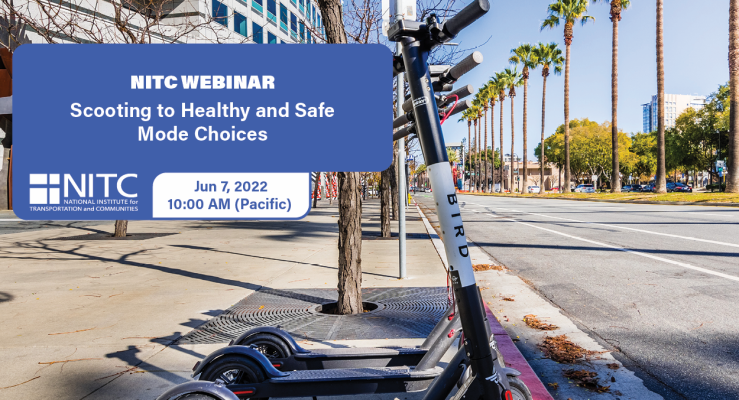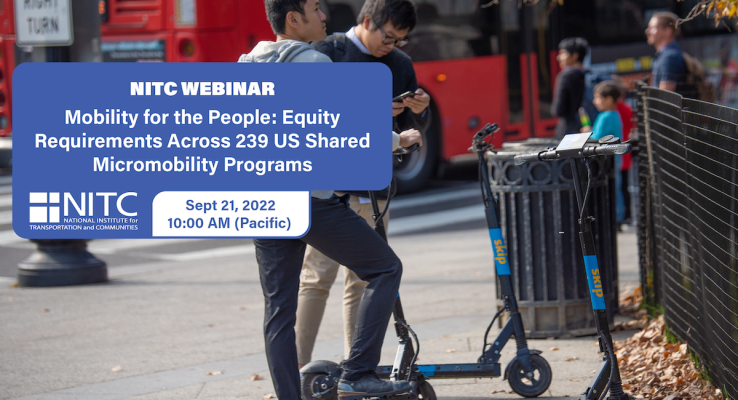PRESENTATION ARCHIVE
OVERVIEW
Shared electric scooters (e-scooters) are fast becoming a mobility option in cities across the United States. This new micromobility mode has the potential to replace car usage for certain trips, which stands to have a positive impact on public health and sustainability goals. However, many aspects of this emerging mode are not well understood.This webinar explores the findings of three NITC studies examining transportation mode choices, safety, and public health outcomes of electric scooters.
KEY LEARNING OUTCOMES
By the end of this presentation, the participant will be able to:
- describe the ways in which electric scooters may provide new substitutive, complimentary or synergist transportation opportunities for different activities...
Friday Transportation Seminars at Portland State University have been a tradition since 2000. You can join us online or in-person (proof of vaccination required, see below) at 11:30 AM. All presentations are recorded and shared on the event page afterwards.
PRESENTATION ARCHIVE
THE TOPIC
John MacArthur and Cameron Bennett of Portland State University will be presenting the findings and recommendations from their recent white paper "Using E-Bike Incentive Programs to Expand the Market – Trends and Best Practices." This will include a review of the 50+ current, past, and proposed e-bike purchase incentive...
Read morePRESENTATION ARCHIVE
OVERVIEW
Equity requirements in shared micromobility programs have become increasingly prevalent in recent years, but our understanding of the scope and breadth of these requirements has been relatively limited. To address this gap in understanding, we collected documentation about 239 shared micromobility programs from the U.S. and have compiled all the data into an online, interactive dashboard. In this webinar, we will discuss the kinds of equity requirements that are most prevalent, the strategies cities/agencies employ to operationalize equity, and the extent to which these programs are monitored and evaluated. We’ll present findings from our review of 239 U.S. programs, supplemented by five case studies.
In addition, we’ll introduce attendees to two practitioner-focused tools we created to accompany this work:
1)...
Read more


